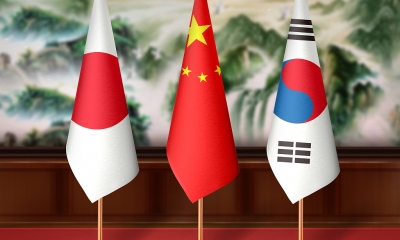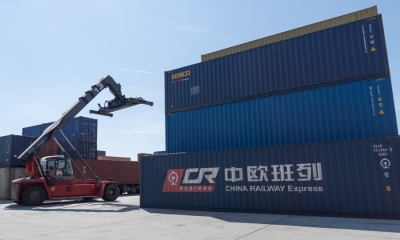Trump’s Tariffs Plus Biden’s Tariffs Equals Protectionism
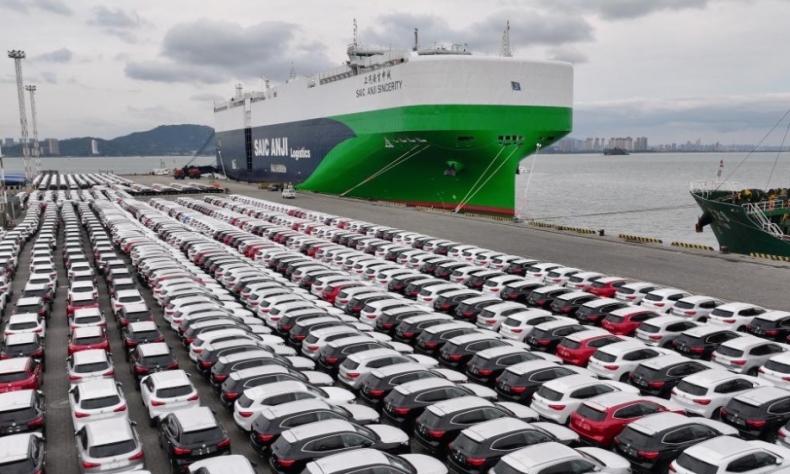
Whether Biden is polite is not the issue because he is still guilty of carrying out a protectionist agenda that flies in the face of what the United States stands for: free trade.
There are many reasons why China’s government might be frustrated with U.S. President Joe Biden. But if you are looking for one of the biggest reasons why Chinese officials must shake their heads in disbelief when they think about America’s 46th president, trade protectionism might be it.
When Donald Trump was president, Biden made it clear that using tariffs and economic sanctions against China was bad policy. At one point, in the folksy way Biden often demonstrates, he claimed that students studying economics “could tell you that the American people are paying (Trump’s) tariffs.” They were when Trump was president, and they continue to pay with Biden in the White House.
The U.S. Customs and Border Protection Office recently examined America’s tariffs relating only to solar panels, steel and aluminum made in China. The cost to American businesses and consumers? An estimated $230 billion.
According to two members of the Federal Reserve Board, the seemingly never-ending tariffs in manufacturing industries have led to job losses throughout the sector and have not created the promised boost to America’s manufacturers. One employer recently told NPR, “I feel like the tariffs put small manufacturers like us at the front line. We’re the ones paying the tariff. We’re the ones out trying to find new suppliers … I feel a little bit like a pawn in this big geopolitical game.” The Tax Foundation issued another warning: There is no guarantee that once tariffs are cast aside, normal business operations will return.
And yet Biden persists.
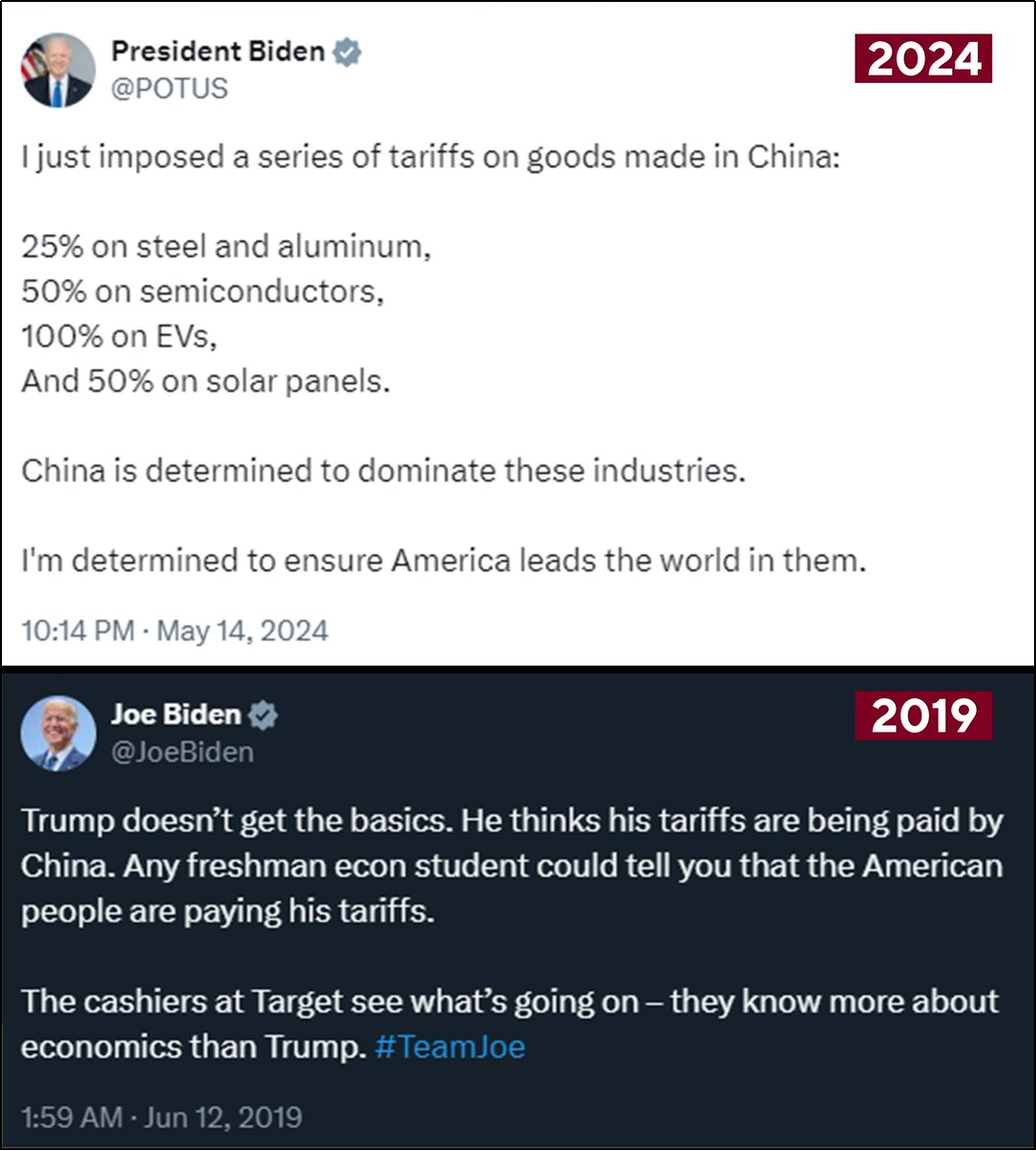
In case you were wondering, yes, Trump is promising to issue even higher tariffs, should he return to the White House next year.
Biden has turned to a familiar argument to assert why continued tariffs are necessary: national security. He wants Americans to believe China poses a risk everywhere, no matter if he is referring to steel, high-end computer chips, electric vehicles (EVs) or something else. One critic made an astute observation: The tariff strategy — employed by Trump and Biden — is not working, so doubling down by increasing tariffs now makes zero sense.
The National Review, a leading conservative voice in American media discourse, summarized Biden’s failed tariffs policy well. “If the Biden administration wants to make a national-security case against Chinese EVs, steel, or semiconductors, it has all of those laws at its disposal to do so. It has not made that argument.”
Indeed, EVs are an excellent case study to explore. The data are clear: China makes the most EVs and people inside that country and across the globe are buying them. The International Energy Association notes that Chinese-made EVs account for 60 percent of all global sales. According to Chinese official statistics, in the first quarter of 2024, China exported 307,000 EVs, 23.8 percent up “over the same period in 2023.” Europe was a destination for 0.64 million of those cars in 2023. There, an interesting dynamic is playing out: European governments want more and more people to buy such cars, but European car manufacturers have no chance to meet the demand.
Meanwhile, a similar problem exists in the U.S., where the automobile industry is hesitating to manufacture more EVs. The industry did not help itself when it successfully lobbied the Trump administration to roll back federal standards that required cars with increased fuel economy be made available.
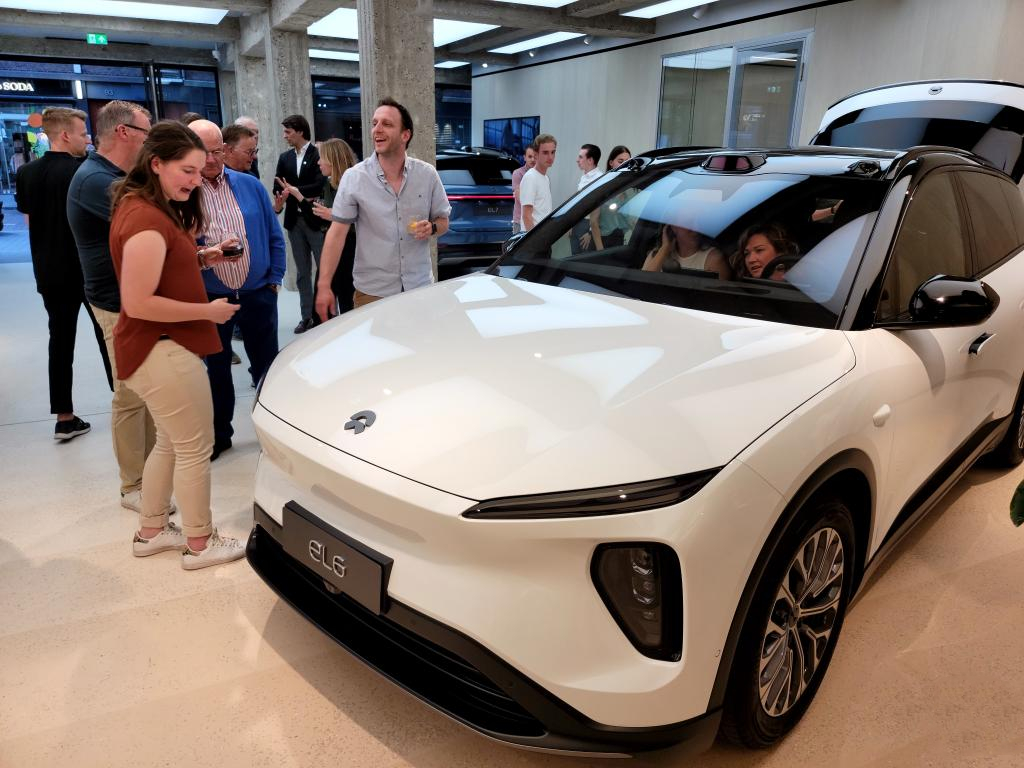
Think about it: Western political leaders want more and more of their citizens to buy EVs, but their domestic automobile manufacturers are admitting they are not positioned to do that. That leaves China as the most logical, in fact only, option.
That reality angers the Washington political establishment. Put bluntly, Biden, like all leading American politicians, knows the United States is not the global leader in EVs. And if the U.S. is not number one, then Washington will abandon any pretense of supporting free trade. Viewed another way, free trade is America’s best friend when America is the primary beneficiary of it. In any other circumstance, cries of unfair trade practices or threats to national security will be heard from leading American political figures.
Yet, the anger expressed so loudly and so often at Trump is not happening with Biden. So, why has the conversation changed? One critic has suggested that because Biden does not rant and rave on social media, he comes off as a practitioner of “polite protectionism.”
Whether Biden is polite is not the issue because he is still guilty of carrying out a protectionist agenda that flies in the face of what the United States stands for: free trade.
In case anyone is wondering, no, China did not engage in protectionism as it came to dominate the EV market. Smart government policies, a long-term strategy to create affordable EVs and a strong market demand explain China’s international position.
The U.S. is playing catch up. If it has any chance to narrow China’s advantage, it must do what it claims it can do so well — adapt. Encourage manufacturers to build such cars. Create legitimate incentives to do that. Study the Chinese example to see how a long-term strategy is a winning strategy.
And get rid of punishing tariffs on EVS and all other industries.
 Facebook
Facebook
 Twitter
Twitter
 Linkedin
Linkedin
 Google +
Google +






